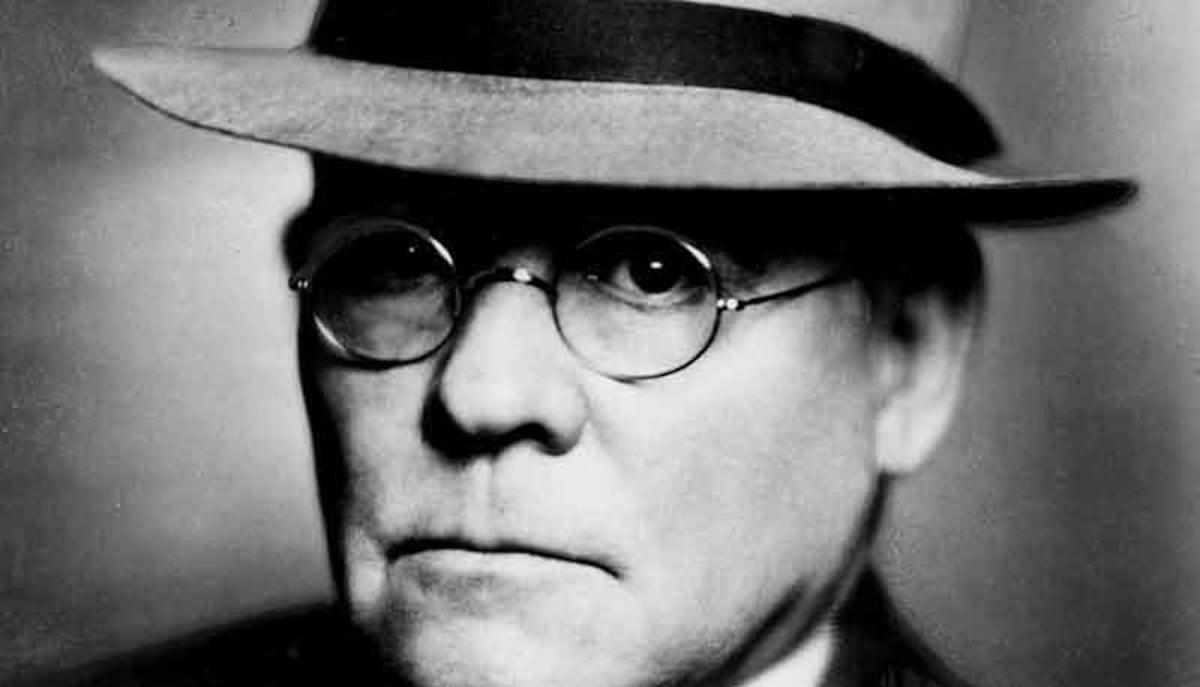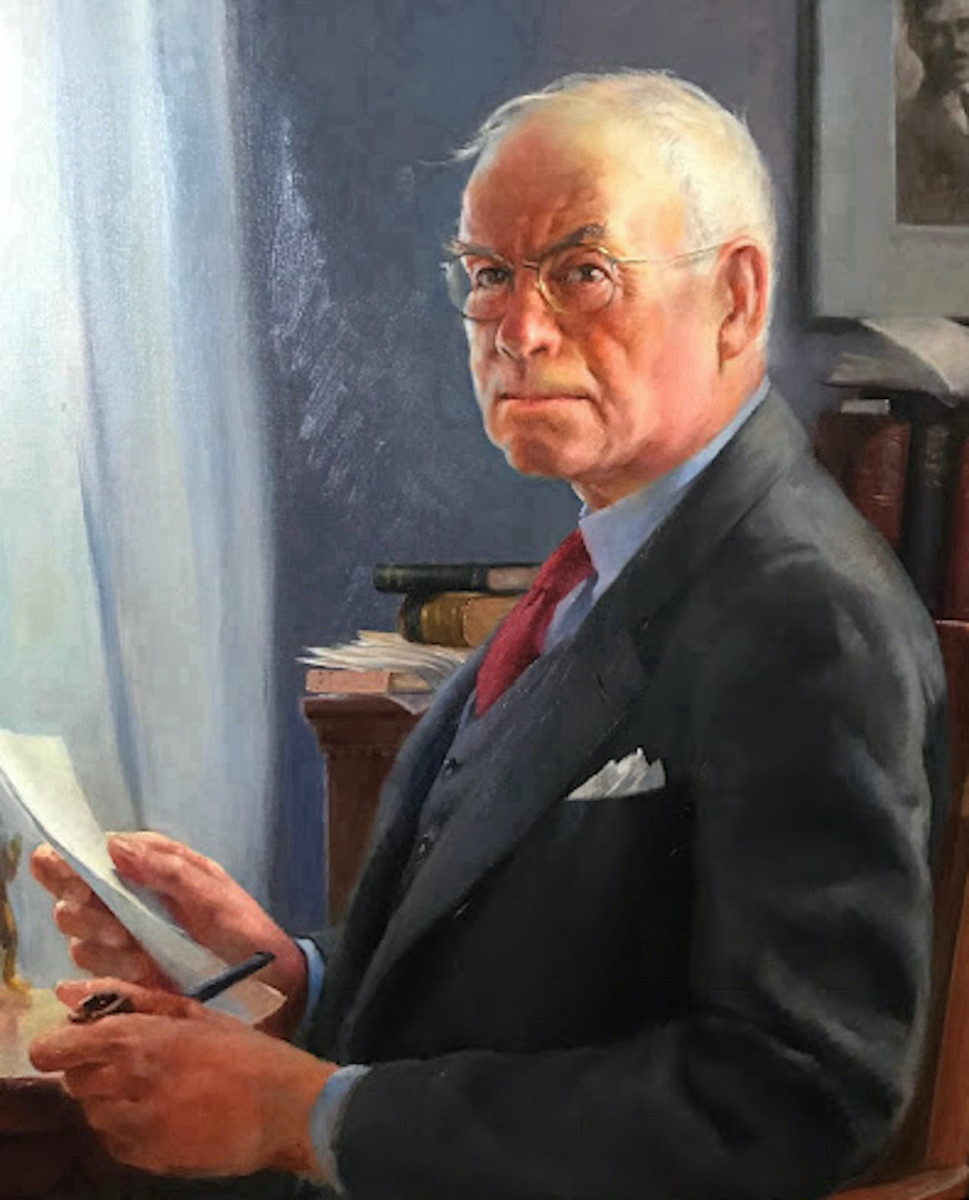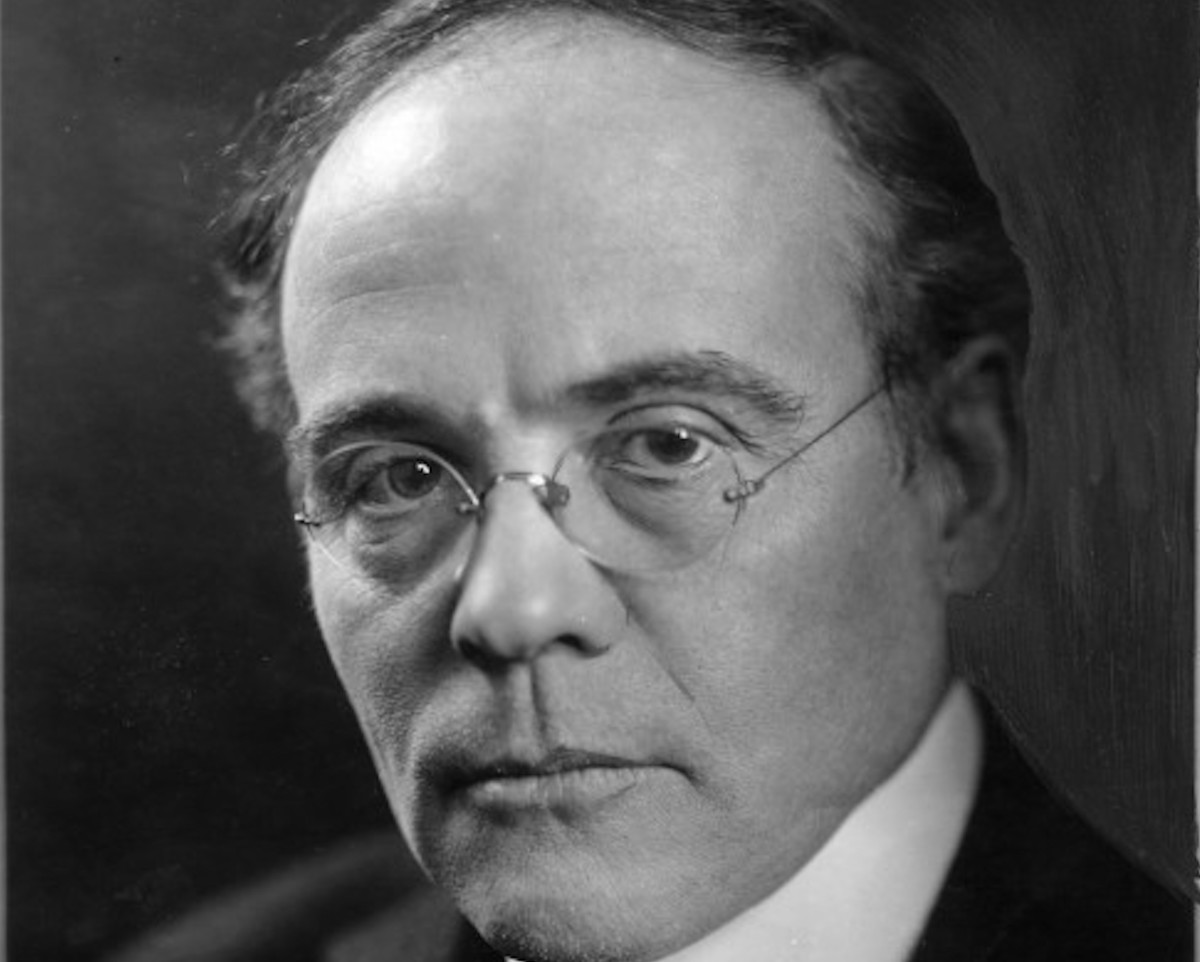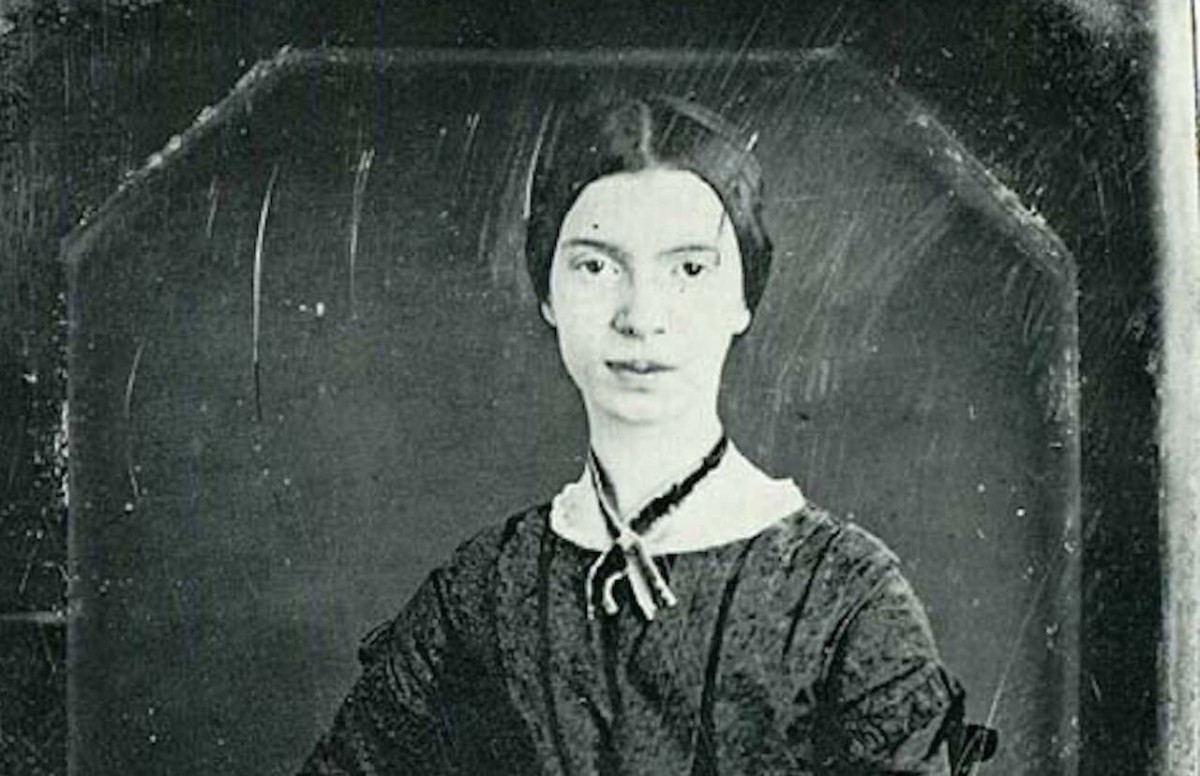Edgar Lee Masters’ "Nellie Clark"

Introduction and Text of "Nellie Clark"
The speaker of Edgar Lee Masters’ epitaph titled "Nellie Clark" from his American classic, Spoon River Anthology, begins her blunt report by describing a horrific event that certainly influenced the direction of her life and likely shortened her life.
Although this character remains simplistic, lacking much depth of experience and feeling, she does communicate her confusion and life of horror as she focuses on the despicable act that ruined her life.
Nellie Clark
I was only eight years old;
And before I grew up and knew what it meant
I had no words for it, except
That I was frightened and told my Mother;
And that my Father got a pistol
And would have killed Charlie, who was a big boy,
Fifteen years old, except for his Mother.
Nevertheless the story clung to me.
But the man who married me, a widower of thirty-five,
Was a newcomer and never heard it
Till two years after we were married.
Then he considered himself cheated,
And the village agreed that I was not really a virgin.
Well, he deserted me, and I died
The following winter.
Commentary on "Nellie Clark"
Nellie Clark’s report focuses on the traumatic event she experienced at only eight years of age.
First Movement: A Violent Experience
I was only eight years old;
And before I grew up and knew what it meant
I had no words for it, except
That I was frightened and told my Mother;
When she was only eight years old, Nellie was raped by Charlie, an older boy of fifteen. The little girl did not even realize what had happened to her, and she could not even give that act a label; as she explains, she had "no words for it."
However, Nellie did describe the act to her mother because she did experience fear after she was violated. Although Nellie has no word for crime at only age eight, even as she reports as an adult, she never uses the term "rape."
However, no reader can come away from Nellie's description without knowing what had occurred and know that the term "rape" does apply to what happened to the little girl. As an eight year old, there is no way that Nellie could have consented to that violent assault that took her virginity.
Second Movement: Violent Intentions
And that my Father got a pistol
And would have killed Charlie, who was a big boy,
Fifteen years old, except for his Mother.
Nevertheless the story clung to me.
After learning about what happened to his daughter, Nellie's father took out his pistol with intentions of killing the boy, Charlie, who had raped his daughter. Nellie's father, however, did not kill the boy. And it remains somewhat unclear who managed to stop him.
Nellie states it this way: " . . . my Father got a pistol / And would have killed Charlie, who was a big boy, / Fifteen years old, except for his Mother." It remains unclear whether the "Mother" was the mother of Nellie's father or the mother of Charlie, the boy who raped Nellie.
It is likely Charlie's mother. Nellie would possibly have said her grandmother, if Nellie's father's mother has been the one to stop him. Either way, some mother prevents Nellie's father from becoming a murderer, which would have further traumatized the young girl.
Third Movement: Nellie's Husband
But the man who married me, a widower of thirty-five,
Was a newcomer and never heard it
Till two years after we were married.
Nellie then reports that she had to live with the story following her throughout her life; she expresses it as, "the story clung to me." Eventually, Nellie marries a man who had relocated to Spoon River and who did not know about the crime perpetrated against Nellie.
Nellie's husband had been a widower and was thirty-five years old. It is unclear the exact age of Nellie at the time of marriage, but she appears to suggest that she was still in her teens or likely in her early twenties.
Nellie and her husband had been married only two years when he learned that Nellie had been raped when she was eight years old. The man's "newcomer" status had prevented him from being aware of the story clinging to the young Nellie.
Fourth Movement: He Felt Cheated
Then he considered himself cheated,
And the village agreed that I was not really a virgin.
Well, he deserted me, and I died
The following winter.
After learning about Nellie's attack and therefore her lack of virginity, her husband leaves her. He claimed that he felt "cheated." Nellie asserts that, "the village agreed that I was not really a virgin." Then after being abandoned by her husband, Nellie dies the "following winter." Nellie offers no indication as to how she died.
Nellie, thus, leaves her listeners wondering how old she was when she died and what caused her early death, but those two details pale in comparison to the grizzly scene Nellie had earlier in her report planted in the mind's eye of her readers.

Related Edgar Lee Masters Information
- Life Sketch of Edgar Lee Masters - Edgar Lee Masters’ American classic Spoon River Anthology brought the poet into the literary spotlight, and no other work from his extensive writings has attracted more attention, including his sequel to Spoon River The New Spoon River.
Commentaries on Edgar Lee Masters Poems
- Edgar Lee Masters’ "The Hill" The poem "The Hill" opens Edgar Lee Masters’ American classic Spoon River Anthology, which is told in a series of dramatic epitaphs by the deceased residents of Spoon River, an imaginary town in Illinois. The work might be considered a character study in poetry.
- Edgar Lee Masters’ "Hod Putt" Hod Putt considered himself a loser in life, but he envied those who were successful.
- Edgar Lee Masters’ "Fiddler Jones" and "Barney Hainsfeather" Fiddler Jones is one of the less melancholy figures of Spoon River, though he has his trials as well. Barney Hainsfeather's epitaph reveals a unique complaint of a man who laments being buried in the wrong cemetery.
- Edgar Lee Masters’ "Robert Fulton Tanner" Fulton is a pathetic character, who discovers that literally building a better mouse trap might only provide a cliché to fling at this thing vaguely called "Life."
The "Minerva Jones" Sequence
1. "Minerva Jones" The "Minerva Jones" epitaph features one of the most depraved characters of the Spoon River talking dead. She is self-absorbed and haughty, lacking empathy and self-awareness, causing her to remain ignorant of her own discordant thoughts.
2. "'Indignation' Jones" In the second epitaph of the "Minerva" series, the poetess’ father, "Indignation" Jones, fulminates against Spoon River society.
3. "Doctor Meyers" The third epitaph in the Minerva Jones series features "Doctor Meyers," who performed the abortion that led to the death of the unfortunate poetess.
4. "Mrs. Meyers" In the fourth epitaph in this series,"Mrs. Meyers," Dr. Meyers' wife testifies that her husband, whom she calls "poor soul," reaped what he sowed for his actions in life. The religious woman offers advice for a pleasant and peaceful life, reminding humanity to "Love God and keep his commandments."
5. "'Butch' Weldy" The fifth and final epitaph "'Butch' Weldy" concludes the "Minerva" series. Butch declaims about his ordeal after a work related accident—with nary a nod to Minerva.
The Pantier Sequence
1. "Benjamin Pantier" and "Mrs. Benjamin Pantier" Unbridled arrogance, overweening vanity along with cowardly weakness have combined to bring about the destruction of the marriage of Mr. and Mrs. Benjamin Pantier. The husband appears to be weakling allowing himself to be cowed by his wife, an arrogant bully.
2. "Reuben Pantier" Reuben Pantier's colorful character helps dramatize the power of spiritual love for healing the mind, heart, and soul, even through the distance of miles and decades. Reuben is the son of the dysfunctional couple Mr. and Mrs. Benjamin Pantier.
3. "Emily Sparks" The epitaph "Emily Sparks" in Edgar Lee Masters’ American classic Spoon River Anthology is the fourth entry in the sequence of five epitaphs featuring a dysfunctional couple, their son, and the latter’s influential mentor.
4. "Trainor, the Druggist" Edgar Lee Masters’ "Trainor, the Druggist" from the American classic Spoon River Anthology offers a final installment covering the pitiful story of the Pantiers: Mr. and Mrs. Benjamin Pantier and their son Reuben.
This content is accurate and true to the best of the author’s knowledge and is not meant to substitute for formal and individualized advice from a qualified professional.
© 2025 Linda Sue Grimes





